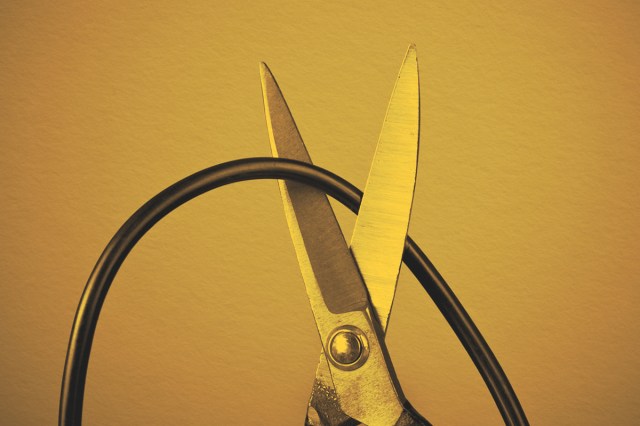
Starting about 10 to 15 years ago, “cutting the cord” became a big phrase in regard to technological independence. We were saying goodbye to wired internet connections, eschewing cable services in exchange for streaming platforms, and replacing home phones with mobile-only lines. “Cut the cord” has long been an idiom used to describe a greater sense of independence, but it is not limited to and didn’t start with technology (even though “cord” may imply as such).
The word “cord” first appeared in English during the 1300s, long before cable television existed. It came from the Old French corde, and it meant “a string or small rope composed of several strands twisted or woven together.” During the late 14th century, “cord” took on a more figurative meaning, referring to anything that binds or restrains. In a technological sense, many materials have been used for cords. In the 1720s, scientists discovered that electricity could travel along metal, but the first power distribution system wasn’t invented until 1882, by Thomas Edison. He used copper rods, wrapped in a natural jute fiber, overlaid with a coal-like substance. The next progression came from Charles Goodyear: He patented vulcanized rubber in 1844 and it was applied to electricity in the late 19th century through the 1940s. The most current iterations of cords use PVC to insulate the metal wires. With the advent of battery technology, the word “cordless” became a popular term in 1905, specifically with regards to items that were battery-powered.
The first recorded use of the expression “cut the cord” was in 1950 in Roosevelt in Retrospect, a book by John Gunther. In that work, Gunther wrote, “Step by step, little by little, FDR became free [of his mother’s influence.] In a sense, it was the paralysis that cut the cord.” This usage referred to a mother’s umbilical cord, and a metaphorical attachment to a child later in life. A similar idiom, “cutting the apron strings,” also refers to an extended (sometimes unhealthy) attachment to a mother.
Idioms tend to have a life of their own, though, and while the original usage was related to mothers and children, the wording was too perfect not to be imbued with a stronger technological connotation in the 21st century. This was due to the very literal shift away from the cords of physical electronics. When somebody cancels their cable subscription and signs up for a streaming service, or finally unplugs that last telephone jack, that person has “cut the cord.”















